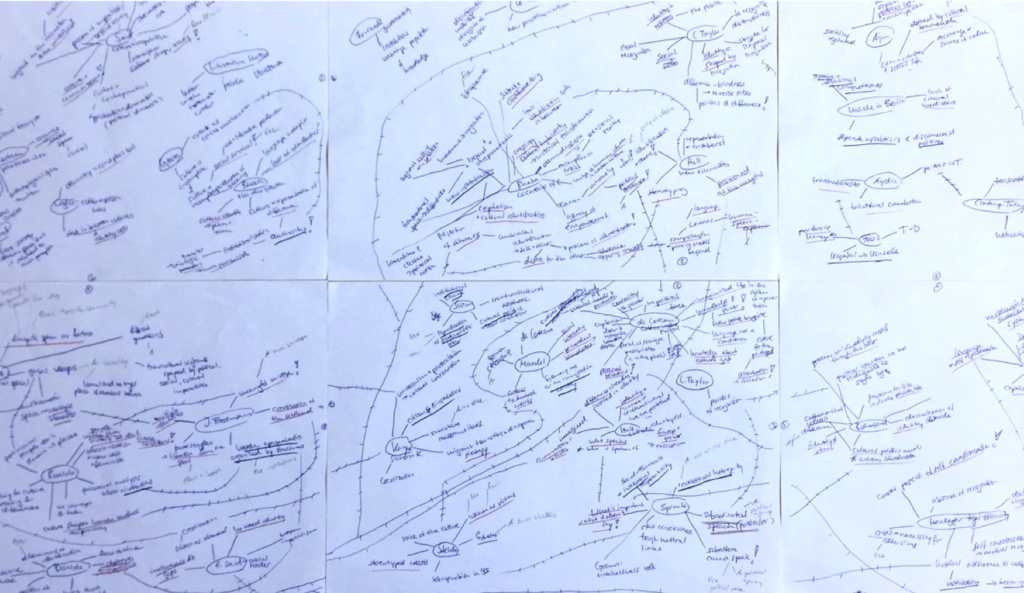Turkish Artists in Berlin: Creative Journeys of Non-Belonging
What does a journey look like if it would be a work of art? In my thesis I explain that Turkish artists create “journey-forms” (Bourriaud, 2009, p. 113) for Berlin’s art scene. In the years 2010-2019 many visual artists fled Recep Tayyip Erdoğan’s regime and arrived in Germany’s capital. Yet, in Berlin’s contemporary art world, they are confronted with other forms of exclusion, need to face new hierarchies and compete in niche networks. Instead of arriving at a new home I show how they rather enter the unknown. The unknown is a complex web of place, time and people that I disentangle in my thesis. Based on fourteen in-depth interviews with contemporary Turkish artists and eighteen interviews with curators, cultural workers and representatives of the Berlin Senate I analysed what it means to remain in a state of non-belonging.
In order to critically research the relationship between the group of cultural elites and artists I merge viewpoints from anthropology, geography, history, sociology of art, postcolonial studies, critical race theory and feminist theory. Thereby I do not only situate my thesis in the wider context of migration between Turkey and Germany, reaching back into the last century, but mainly pave way for studying cultural heritages of the future. My interdisciplinary toolbox enables me to engage with the concept of non-belonging as a form of empowerment for Turkish artists. In this framework non-belonging is an ambivalent feeling but can also be a form of art practice with new aesthetics. This means, I show with artworks how artists can translate exclusionary experiences. In Germany, resentments towards foreigners are sometimes projected onto people with a Turkish migration background who form the largest minority. Turkish artists who arrive in Berlin today can actively contribute to challenge stigmatizing patterns of perception with their “journey-forms” (ibid.).
